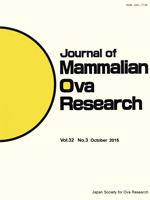During the menstrual cycle, the human endometrium undergoes dramatic changes, including cyclical proliferation, differentiation and menstruation, under the stringent control of ovarian steroid hormones. Endometrial stromal cells (ESCs) spontaneously differentiate into decidual cells in response to increased progesterone and intracellular cyclic adenosine monophosphate (cAMP) levels during the mid-secretory phase of the cycle. This process, termed decidualization, is strictly defined as the morphological and biochemical reprograming of the ESCs and is required for successful pregnancy. In pregnancy, the decidua functions as a critical barrier between the mother and fetus by modulating trophoblast invasion and the immune response. We recently demonstrated the involvement of a novel cAMP target, an exchange protein directly activated by cAMP (EPAC), in the process of decidualization. This review presents the molecular mechanisms of decidualization regulated by progesterone and the cAMP signaling pathway and highlights the role of EPAC in the process of decidualization.
How to translate text using browser tools
1 October 2015
Molecular Mechanisms of Human Endometrial Decidualization Activated by Cyclic Adenosine Monophosphate Signaling Pathways
Mikihiro Yoshie,
Kazuya Kusama,
Kazuhiro Tamura
ACCESS THE FULL ARTICLE
It is not available for individual sale.
This article is only available to subscribers.
It is not available for individual sale.
It is not available for individual sale.
cAMP
decidualization
EPAC
PKA
progesterone





